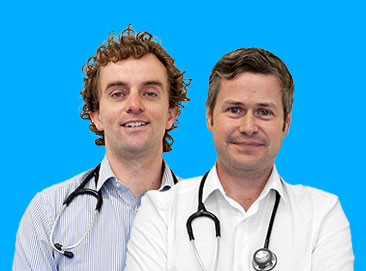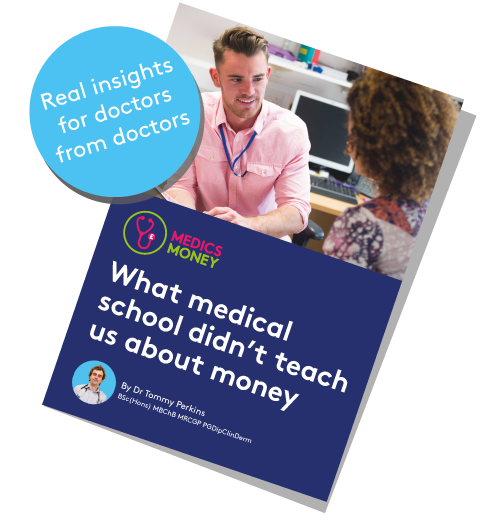Here at Medics’ Money we get loads of questions from doctors worried about the impact of the McCloud and Sergeant cases on the NHS Pension. We asked David Walker from Medics’ Money approved specialist medical accountants Moore and Smalley to tell us what the McCloud judgement means for doctors with an NHS Pension.
History
Let us start at the beginning. In 2010 the Government determined that the cost of public sector pension provision was not sustainable. They set up a commission, chaired by the former Labour minister, Lord John Hutton, to “make recommendations on provision that is sustainable, affordable and fair in the long term.” Lord Hutton produced an interim report in September 2010 and a final report in March 2011 setting out the commission’s findings. Most will now be familiar with the outcome, and that was, in the NHS, the introduction in 2015 of the new pension scheme.
The new scheme linked normal retirement age to your state pension age, meaning most people would have to work longer to obtain a full, unreduced pension. The normal retirement ages in the existing schemes were 60 in the 1995 scheme and 65 in the 2008 scheme.
Medics’ Money is run by doctors and finance experts, for doctors. Our free financial CPD gives you all the knowledge you need to take control of your finances.Join 30,000 doctors and receive free, exclusive, financial CPD for doctors in your inbox.

Across most schemes a system of protection was put in place to safeguard the benefits of older members nearer to retirement. In the NHS scheme, those within 10 years of retirement remained wholly in their legacy scheme, whilst younger members moved immediately into the 2015 scheme, and then some in between transitioning over on a sliding scale dependent upon age between 2015 and 2022.
The McCloud judgement (Judges) and another case, Sargeant from the Firefighters, were heard simultaneously. These cases accused the Government of discriminating against younger pension scheme members by not affording them the same protection as older ones. They won. This means that some form of restitution was required so that all are treated the same.
The upshot is that Government have decided that scheme members will have the choice of having all their benefits in the years 2015 to 2022, now called the ‘remedy period’, either wholly in their old scheme or wholly in the new scheme. There will be no ability to have a bit of some and a bit of the other. In April 2022 all members, regardless of age, will begin to accrue benefits in the new scheme.
As a choice is to be given, then a decision needs to be made. That decision is to be exercised at the point you take your benefits, when all relevant factors of earnings, service, career path etc are known and a meaningful comparison of benefits can be produced.
But let’s just go back to Lord Hutton. At section 7.34 on page 155 of his final report, he lays his position out clearly about protection. Older members would already have the majority of their benefits accrued in their legacy scheme, so movement to a new scheme would have limited impact, particularly if final salary linking remained (it does). Protection should not, therefore, be necessary. He went on to say that “age discrimination legislation also means that it is not possible in practice to provide protection from change for members who are already above a certain age.”
So, there you go. The architect in chief of all the new public sector schemes warned the Government in 2011 that protection would be unlawful. They didn’t listen.
Mechanism
What is going to happen? In April 2022 two things will happen. Firstly, as mentioned above, everyone will start accruing benefits in the 2015 scheme. Secondly, there will be a default position where everybody will have their benefits in the remedy period of 2015 to 2022 converted to their old scheme if they had moved into the 2015 scheme. This has several knock-on effects.
Annual Allowance pension tax charges
The 2015 scheme accrues benefits at a faster rate than the 1995 and 2008 legacy schemes. It just means that you have to work longer to obtain those benefits unreduced. What it means for Annual Allowance (AA) tax is that the higher accrual creates a greater exposure to the charge. By reverting to your original scheme, anybody with AA tax paid for the remedy period, either personally or by the available scheme-pays election method, will need their exposure recalculating on their original terms, which mostly will mean a reduction in tax. A reduced AA exposure also means, for those affected by the tapered AA, retention of more of the standard allowance, so the impact may be reasonably rewarding.
This creates a significant problem for the NHS Business Services Authority (NHSBSA), which administers the scheme. It will have to re-examine calculations for thousands of members for seven years and, where necessary, amend a large amount of scheme pays elections. Government has given schemes up to October 2023 in which to put systems and procedures in place to enable them to carry out this exercise and also put in place computer systems that enable benefits in the remedy period to be calculated in each scheme side by side so that, at retirement, you have comparative information that enables an informed decision to be made. That will be no mean feat!
Having had your benefits in the remedy period reverted to your original scheme, what happens if you end up working to 67 and it turned out you would have been better off having benefits for those years in the 2015 scheme? That can still happen. It could, however, have a large AA implication at the time of retirement as Government are saying that all of the extra accrual for the earlier years will fall into the year of retirement when the decision is made. Crucially, however, they have also said that they would not look to recover AA tax over and above what would have been incurred had that decision not been made. Quite what that rather general statement means in practice when we reach that point is not clear yet.
Tax
Two things can happen to the tax position; either you will have paid too much, or you will have paid too little. If you have paid too little, the Government have said that they will not look to recover tax beyond the normal statutory limits. This means the current tax year or any of the previous four full tax years. Consequently, when we reach April 2022 and your remedy period benefits revert to your old scheme, you may face a higher AA charge for, say, 2016/17. By April 2022 that is beyond the statutory limit so any tax paid or scheme pays election made will remain unchanged.
Where, however, tax is due back to members, then all tax will be repaid regardless of time limits. This is very welcome news, but will mean much extra work, and cost, in reaching agreement with NHSBSA’s AA calculations, changing scheme pays elections, getting refunds from HMRC etc.
Other issues and contingent decisions
There are a number of other issues that will arise. What happens to members who have drawn their pension? What happens for families who have been paid out death benefits for one scheme when the other may have been beneficial? What about ill-health pensions paid? All these areas are to be dealt with as a priority as the same choice has to be given.
Other side issues would include overpayment of pension contributions. The 2015 scheme annualises income to produce the tier rate at which you pay. The 1995 scheme did not. If you paid on an annualised rate, then reversion to 1995 may mean you have overpaid contributions and are due a refund. You will get that refund, but subject to a deduction for the tax relief you received on it. This will include for years prior to the statutory recovery limit described above and is a turn around by Government from their original consultation document.
There may also have been contingent decisions taken. People may have opted not to join the 2015 scheme to avoid loss of, say, Enhanced Protection. We argued strongly in the response to the consultation that this should be reinstated, and members given the right to re-join the 1995/2008 scheme for the remainder of the remedy period. Government has said that each such case will be looked at on an individual basis, which will mean a measure of subjective judgement from our friends at the NHSBSA.
The figures
I have taken a reasonably typical GP client of ours and calculated pensions and AA liabilities under the current arrangements and again if remedy period benefits revert to the 1995 scheme. The GP is 52, from a decent earning practice, although not extreme, and has an added years contract. From 2016/17 to 2019/20 a tapering of the AA happened in three of the four years and there was AA tax due at one level or another in each year. Below is the outcome. The pension benefits quoted are the full unreduced benefits before any actuarial reduction if taken early.
| 1995 pension at 5/4/2020 | 2015 pension at 5/4/2020 | Total AA tax due 4 years to 5/4/2020 | |
| Without change | £47,851 | £13,237 | £54,299 |
| Revert to 1995 | £57,586 | Nil | £41,659 |
The total pension currently is just over £61,000 with over £50,000 of AA tax. Let’s say the GP was actually 60. The £47,851 could be taken without reduction and attracts a lump sum of three times that. The £13,237 could be taken at 60, but that is 7 years early and would suffer a reduction of around 30%, down to £9,266, and no corresponding lump sum. Total pension £57,117 and lump sum £143,553. If we assume the scheme paid the tax in each case, the pension would be reduced by around £2,500 and the lump sum by a similar figure.
With the McCloud reversion, the full unreduced 1995 pension is £57,586 and a lump sum of £172,758, reduced to £55,586 and £166,758 respectively after scheme pays recovery.
In fairness, I should say that, if this GP were aged 67, the pension of £61,000 would be received in full, less the same scheme pays recoveries. The lump sum would be £143,553 from the 1995 benefits.
What else?
Much remains unknown. Will NHSBSA continue to issue Pension Savings Statement for 2020/21 and 2021/22 based on 2015 membership, which will clearly be irrelevant after 2022? After 2022 the AA position will be retrospectively reconfigured with legacy scheme results. The AA position based on 2015 benefits will therefore be superseded. It would seem a waste of resources to produce statements that have no bearing. Will we have to resubmit GP certificates of pensionable pay to PCSE for the remedy period years showing previous scheme membership? What is the appeals process for contingent decisions? Will revised pension benefit and pension savings statements be issued automatically? We shall have to wait and see.
What do I need to do?
Your decision should be made in conjunction with a suitably qualified and experienced specialist healthcare independent financial adviser. It isn’t just about the pension – there is life cover to consider, spouse and family benefits, differing ill-health benefits and so on.
Until you retire, there is no decision to be made, but specific actions need to occur. As soon as possible after April 2022, it would be preferable to have possession of all the revised statements and AA information you require to work with your specialist accountant to ensure your tax, AA, scheme pays, contributions and tax relief are all correct for legacy scheme benefits in the remedy period. I don’t normally like making predictions, but for some of you I can see this will not all run smoothly!
Further information
If you would like further information, then please contact Moore and Smalley here.
“What medical school didn’t teach us about money” will give doctors a step by step plan to transforming your financial future. Enter your details to download your copy nowWhat medical school didn’t teach us about money









